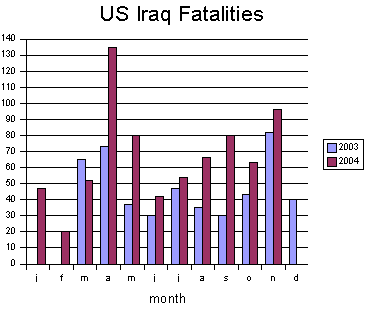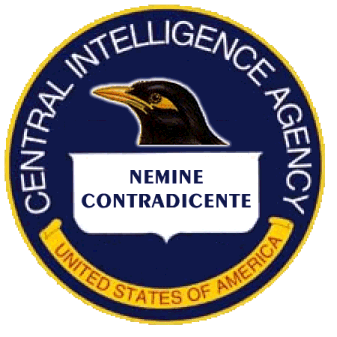Saturday, November 20, 2004
Kristof's bright idea: We don't often agree with Nicholas Kristof, but in today's NYTimes Op-Ed about reforming the electoral process he says something we've been harping about for years: Funnel campaign donations through a blind trust. The funkiest idea in politics is to make donations anonymous even to the recipient. Citizens would make contributions through a blind trust, so that candidates wouldn't know to whom they were beholden.
If officials don't know who their major contributors are, they can't invite them to spend the night in the Lincoln Bedroom or write tax loopholes. A donor might boast about having made a contribution, but special interests will realize they can save money by telling politicians that they have donated when they haven't, and then politicians will doubt these boasts.
Such a system of shielding names of donors exists in 10 states, to some degree, for judicial candidates. A provocative book by Bruce Ackerman and Ian Ayres, "Voting With Dollars," makes an excellent case that the system be applied more broadly, but we need some innovative state (Oregon, do you hear that?) to take the leap.
Chile is a nice role model. While the U.S. was finishing campaigns that were another embarrassing roll in the hay for politicians and lobbyists, Chile was holding its first elections using a new law with a blind trust for campaign donations of more than $500. Patricio Navia, a Chilean elections specialist at New York University, says the system has loopholes but is a big improvement.
"It's a clever idea," he said. "It's a promising way of separating special interests and politicians." As far as the problem of donors informing the politician about the money they've given, we think laws similar to those about insider trading and other disclosure rules for the stock market would be effective, and make the Blind Trust model work.
posted by Quiddity at 11/20/2004 10:03:00 AM
6 comments
Not just the voters? In the New York Times story Negotiators Add Abortion Clause to Spending Bill, we read: (excerpts, emp add) House and Senate negotiators have tucked a potentially far-reaching anti-abortion provision into a $388 billion must-pass spending bill, complicating plans for Congress to wrap up its business and adjourn for the year.
The provision may be an early indication of the growing political muscle of social conservatives who provided crucial support for Republican candidates, including President Bush, in the election.
Some lawmakers and Congressional aides interpreted the House leaders' insistence as reflection of the new political strength of the anti-abortion movement and of Christian conservatives, who played an important role in re-electing Mr. Bush this month. We're sure that Christian/social conservatives like the legislation, but we don't think it's a pure instance of catering to constituents. From our observation of the Republicans in Congress, it appears that they themselves are hostile to abortion. It's part of their character. Unlike other constituent concerns that can be negotiated or traded for something else (by an indifferent congressman), abortion is shaping up to be a non negotiable issue. What does this mean? It probably means that pro-choice and moderate Republicans are going to get frustrated and maybe - maybe - bug out of the party in the next few years.
posted by Quiddity at 11/20/2004 09:33:00 AM
1 comments
Friday, November 19, 2004
Worse this year than last: November 2004 isn't over yet, but it has surpassed November 2003's US fatality count. With the exception of March, every month in 2004 has had a greater US fatality count than in 2003.  SOURCE: Iraq Coalition Casualties website.
posted by Quiddity at 11/19/2004 03:50:00 PM
3 comments
Thursday, November 18, 2004
Faulty logic: We are hearing more about health savings accounts - something Bush was promoting during the presidential campaign. We won't go into all the details or our objections to them, but it's useful to read what Bush said about them in the third presidential debate. He said: (emp add) There is a -- look, there's a systemic problem. Health care costs are on the rise because the consumers are not involved in the decision-making process. Most health care costs are covered by third parties, and therefore, the actual user of health care is not the purchaser of health care. And there's no market forces involved with health care. It's one of the reasons I'm a strong believer in what they call health savings accounts. These are accounts that allow somebody to buy a low-premium, high-deductible catastrophic plan and couple it with tax-free savings. Businesses can contribute, employees can contribute on a contractual basis. But this is a way to make sure people are actually involved with the decision-making process on health care. First, knock down the assertions: - The "consumers" of company provided health care are the companies. They care about the costs and do what they can to find, or bargain for, low rates.
- There are "market forces" involved with health care (see above).
Bush is selling the idea that if each person purchased health care, he or she would shop around for the best deal. Sort of like looking for the best value for a can of beans in the supermarket. But there are problems with that model. First of all, individuals are unlikely to be skilled at choosing the right plan. Staff at a company, staff dedicated to handling the health care of employees, will be better at it than an individual and make better choices. Second, the notion that moving from centralized purchasing to diffuse one will mean lower prices is absurd. Why is Wal-Mart so successful? Because they can negotiate with strength. Bush is saying the opposite, that multiple small buyers will do better. Third, health care is not like a can of beans. It doesn't correspond well to an idealized market (many suppliers, many purchasers, trading all the time, transparency, etc.) Health care often has limited choices, and it has "stickyness" (rules about preexisting condition), to name a couple of problems.
posted by Quiddity at 11/18/2004 01:39:00 PM
8 comments
Tuesday, November 16, 2004
Smile: In the news: A 10-year-old grilled cheese sandwich a Florida woman says bears the image of the Virgin Mary was back on eBay after the Internet auction house initially canceled bids that went up to 22,000 dollars.
 The EBAY listing for that is here. But we started out by typing in "grilled cheese" into EBAY's search engine, and got these amusing items as well:
posted by Quiddity at 11/16/2004 02:41:00 PM
4 comments
Monday, November 15, 2004
Another one: In the wake of our suggestion for a new seal for the Department of Justice, and in light of the purge going on at the CIA, we suggest a change there as well. It appears that career specialists at the agency will be shown the door - to be replaced by reliable, loyal political types. The goal, apparently, is to silence any views that differ from the administration. So out with the eagle. In with a myna bird. And the motto "nemine contradicente" (with no one speaking in opposition) should go on the shield, replacing the compass. Old seal:  New seal:  posted by Quiddity at 11/15/2004 07:34:00 PM
posted by Quiddity at 11/15/2004 07:34:00 PM
3 comments
|